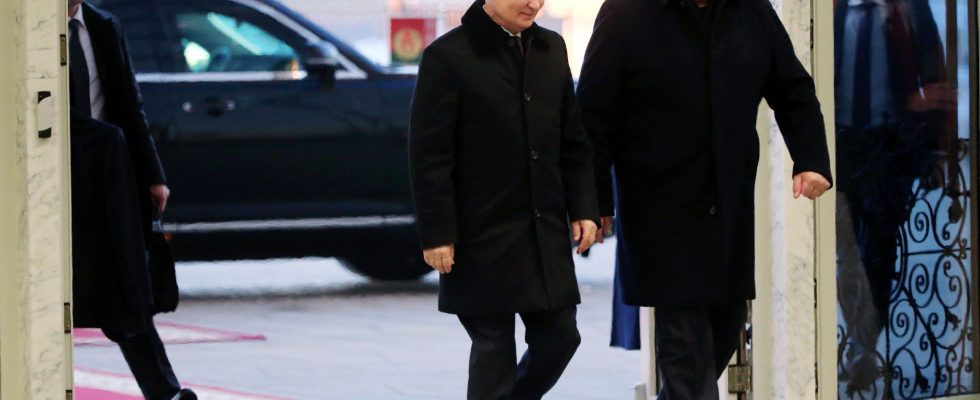The head of the UN’s International Atomic Energy Agency will visit Ukraine’s Zaporizhia nuclear power plant next week to assess the seriousness of the security situation, the IAEA said. Rafael Grossi said in a statement that the dangers to the nuclear safety and security of the Russian-controlled plant were “all too obvious”. At the same time, the Russian head of state announced on Saturday that Moscow was going to deploy “tactical” nuclear weapons on the territory of its ally, Belarus, a country located at the gates of the European Union.
IAEA chief in Zaporizhia next week
The director general of the International Atomic Energy Agency (IAEA), Rafael Grossi, announced on Saturday that he would visit next week the Ukrainian power plant in Zaporizhia (southeast) which, according to him, is in a “precarious” situation. This is Rafael Grossi’s second visit to Europe’s largest power plant since Russia invaded Ukraine, to “directly assess the seriousness of the nuclear safety and security situation. on the site,” said the International Atomic Energy Agency (IAEA).
“Despite our presence on the site for seven months, the situation at the Zaporizhia nuclear power plant remains precarious,” Rafael Grossi said in a statement. “The dangers to nuclear safety and security are all too obvious, as is the need to act now to avoid an accident,” he added. Rafael Grossi proposed to establish a security zone around the site. “I remain determined to continue to do everything in my power to help reduce the risk of a nuclear accident during the tragic war in Ukraine,” he said.
Russia to deploy ‘tactical’ nuclear weapons in Belarus
Russian President Vladimir Putin said on Saturday that Moscow would deploy “tactical” nuclear weapons on the territory of its ally, Belarus. Russian officials have repeatedly issued thinly veiled threats to use nuclear weapons in Ukraine if the conflict escalates significantly. Led since 1994 by Alexander Lukashenko, Belarus borders Ukraine, Poland and Lithuania.
Putin did not say when the weapons would be transferred to Belarus, which borders three NATO members – Poland, Lithuania and Latvia. He said Russia would complete construction of a storage facility there by July 1. The International Campaign to Abolish Nuclear Weapons called Putin’s announcement an extremely dangerous escalation.
Russia has taken Belarus as a “nuclear hostage”, Security Council Secretary Oleksiï Danilov said on Sunday March 26 on Twitter, adding that this decision is a “step towards the international destabilization of the country”.
Putin threatens to use depleted uranium shells
Russian President Vladimir Putin has threatened to use depleted uranium shells in Ukraine if kyiv were to receive them from the West, as recently mentioned by a British official. “Russia, of course, has something to answer for. We have, without exaggeration, hundreds of thousands of such shells. We are not using them at the moment,” Vladimir Putin said in an interview with the Russian television. Depleted uranium is a by-product of the uranium enrichment process. It is about 60% less radioactive than natural uranium.
Ukraine will no longer resort to “dangerous” monetary financing
Ukraine will no longer resort to “dangerous” monetary financing to finance the war against Russia, its central bank governor Andriy Pyshnyi has told reporters. FinancialTimes in an interview published this Sunday. The head of the National Bank of Ukraine said it “created huge risks for macro-financial stability” when the bank was forced last year to print billions of hryvnia to fill a budget deficit. “It was a quick remedy, but very dangerous,” he added.
